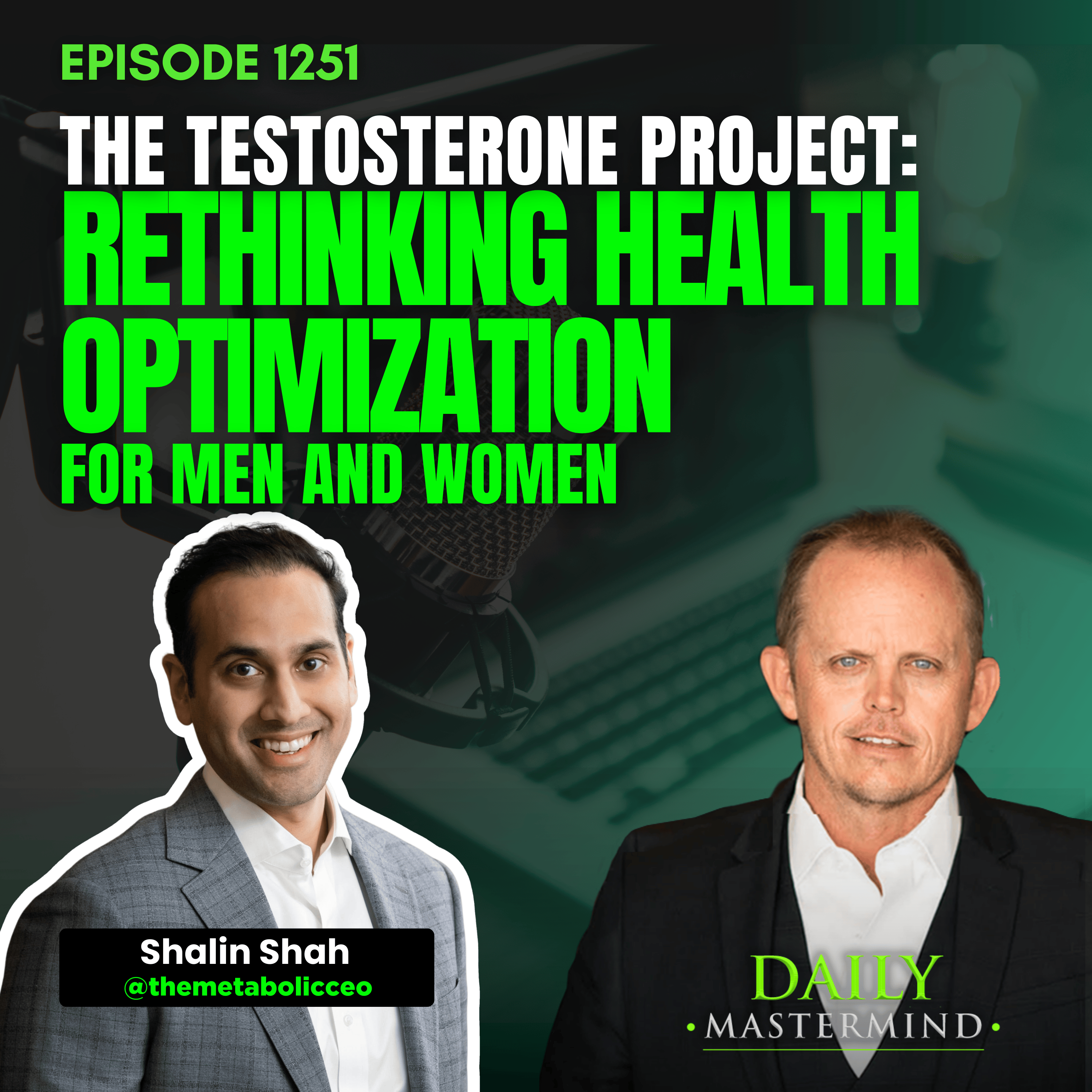
Brain Health Tips to Live Your Best Life
What if your brain is the most important tool you're not actively taking care of? In today’s episode of The Daily Mastermind, George Wright III shares 10 evidence-based strategies for improving brain health, backed by Dr. Daniel Amen’s extensive research. This is more than productivity—this is about long-term performance, mental clarity, and real peace of mind.
Brain Health Tips to Live Your Best Life
Welcome back to The Daily Mastermind. I’m George Wright III, and today we’re going straight to the root of everything—your brain. If you’ve been feeling scattered, overwhelmed, anxious, or just not firing on all cylinders, today’s message is for you.
Let’s begin with our Quote of the Day, from Ben Franklin:
“Well done is better than well said.”
That’s a simple but powerful reminder—action beats talk, every time. It’s easy to discuss big plans and goals, but what really counts is what you do. And today, we’re going to talk about the actions you can take to take better care of your mind and mental performance.
Why Brain Health Should Be Your Priority
Your brain is your most important asset—your control center for thoughts, focus, emotions, memory, creativity, and decision-making. But how often are you intentionally caring for it?
Dr. Daniel Amen, a renowned psychiatrist and founder of Amen Clinics, has done over 200,000 brain scans to study mental health and cognitive performance. From his research, he shares 10 practical ways to improve brain health, especially in times of stress, uncertainty, or burnout.
1. Train Your Brain to Find the Positive
Your brain is naturally wired to detect danger, which means it’s also wired to focus on the negative. But you can train it to search for the good instead. Start each morning by saying,
“Today is going to be a great day,”
and end the day by asking,
“What went well today?”
These small mindset shifts set your brain on a more positive track.
2. Fuel It Right
Your brain is 80% water, and even a 2% drop in hydration can lower your focus and energy. Start your day with protein and hydrate often. Nutrition affects everything from mood to memory—especially for those managing ADHD or anxiety.
3. Get Your Blood Flowing
Exercise isn’t just for the body—it feeds your brain. Although your brain is only 2% of your body weight, it uses 20% of your oxygen. Low blood flow is linked to depression, anxiety, and focus issues. Movement is medicine.
4. Create Designated Spaces
Working or learning from home? Don’t blur the lines. Even a corner desk creates a physical boundary for “focus mode.” This visual and environmental cue helps your brain switch gears and stay productive.
5. Take Real Breaks
Your brain can only focus effectively for about 75–90 minutes at a time. Step away. Breathe. Walk. Meditate. Avoid screens and scrolling—those aren’t real breaks. Your brain needs recovery to perform at its best.
6. Don’t Do It All Alone
Whether it’s a learning pod for kids or a mastermind for professionals, share the load. Community support boosts emotional health and gives your brain the space to think, rest, and grow.
7. Kill the “ANTs” (Automatic Negative Thoughts)
Negative self-talk creeps in without warning. Write it down. Challenge it. Replace it. This daily mental hygiene will help you build resilience and better regulate your mood.
8. Practice Active Listening
Whether at home or work, repeat what others say to confirm understanding. This improves communication and reduces conflict, which helps you avoid emotional drain and relationship stress—both of which directly affect your mental clarity.
9. Signal the End of the Day
Put work away. Literally. Hide the laptop, close the notebooks, and light a candle or diffuse calming oils. Small rituals like this tell your brain it's time to relax. You can’t stay in go-mode forever.
10. Respect Sleep Like a Non-Negotiable
Sleep is not optional—it’s where your brain resets, clears toxins, and consolidates memory. Adults need 7–8 hours. Kids need more. Sleep is where you recover, repair, and rebuild mentally and emotionally.
Brain Health = Life Performance
Whether you're building a business, raising a family, or just trying to stay focused, your brain is the tool that makes everything else possible. If it’s overloaded, undernourished, and overstimulated, everything else suffers. But with just a few adjustments, you can increase energy, reduce anxiety, and bring clarity to your life and work.
You are not your mind—your mind is your tool. But like any high-performance tool, it needs maintenance.
Final Thoughts and a Small Ask
If today’s message helped you, share it. That’s how we grow this community. And if you haven’t already, download the Daily Mastermind mobile app—it’s completely free and packed with tools, quotes, eBooks, guided meditations, and affirmations.
This has been The Daily Mastermind. My name is George Wright III. Let’s keep creating your best life—one day at a time.

.png)


